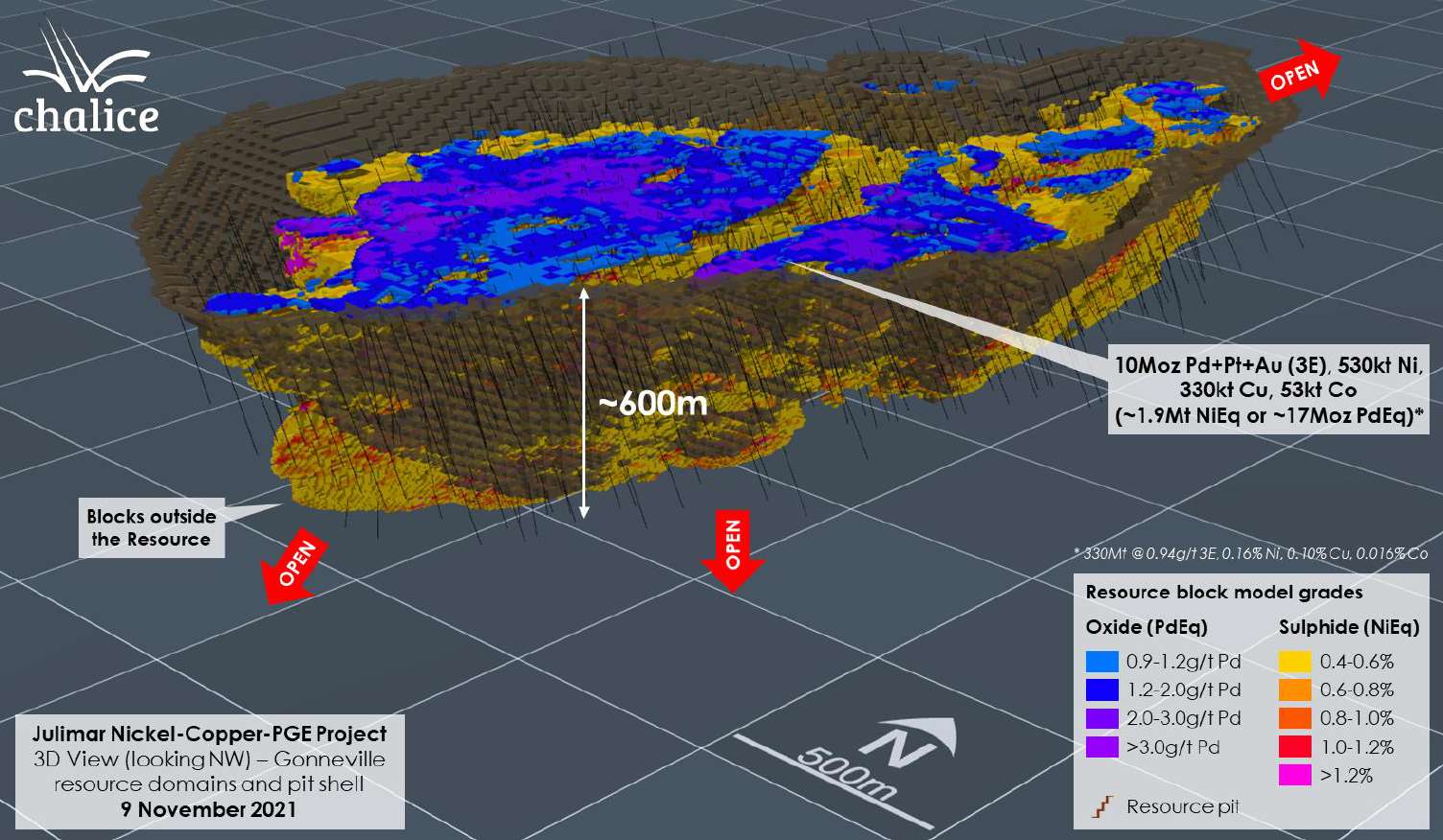 Chalice Mining Ltd. reported its maiden mineral resource estimate for the Gonneville deposit this week, the first discovery at its Julimar nickel-copper-platinum group metals (PGM) project, located 70 kilometers (km) northeast of Perth in Western Australia. The company has defined a tier-1 scale, pit-constrained maiden resource for Gonneville on Chalice- owned farmland, which includes a mix of oxide, transitional and sulphide mineralization. The discovery represents the largest nickel sulphide discovery in more than 20 years, the largest PGM discovery in Australian history and establishes a foundation for a world-class “green metals” project.
Chalice Mining Ltd. reported its maiden mineral resource estimate for the Gonneville deposit this week, the first discovery at its Julimar nickel-copper-platinum group metals (PGM) project, located 70 kilometers (km) northeast of Perth in Western Australia. The company has defined a tier-1 scale, pit-constrained maiden resource for Gonneville on Chalice- owned farmland, which includes a mix of oxide, transitional and sulphide mineralization. The discovery represents the largest nickel sulphide discovery in more than 20 years, the largest PGM discovery in Australian history and establishes a foundation for a world-class “green metals” project.
The resource measures 330 million metric tons (mt) at a grade of 0.94 grams/mt 3E, 0.16% nickel, 0.10% copper, 0.016% cobalt (approximately 0.58% NiEq or 1.6 g/mt PdEq). [Editor’s note: 3E=Palladium (Pd) + Platinum (Pt) + Gold (Au), with an average in-situ ratio of approximately 4:1:0.04 (Pd:Pt:Au).] It contains 10 million oz 3E, 530,000 mt nickel, 330,000 mt copper, 53,000 mt cobalt (approximately 1.9 million mt NiEq or 17 million oz PdEq). Nearly half of the resource (150 million mt) is within the indicated category with 55% within the inferred category. Resource is constrained within a pit shell and reported above a 0.4% NiEq cut-off grade (sulphide) and 0.9g/mt Pd cut-off grade (oxide).
“This is a major milestone for Chalice, coming just 18 months after our stunning first hole discovery at Julimar,” Chalice Managing Director and CEO Alex Dorsch said. “Since then, we have completed more than 175,000 m of diamond and RC drilling and now defined a genuine tier-1 scale deposit of critical minerals, with exceptional growth potential.
“Given its sheer scale, the attractive suite of six payable metals it contains and its premier location close to world-class infrastructure and services in Perth, Chalice clearly has the potential to become a leading global player in the green metals space,” Dorsch said.
The high-grade sulphide component of the maiden resource provides a degree of optionality for mine development that is not often seen in mining projects of this nature. The high-grade mineralization at Gonneville starts near surface, which could be a material factor when considering project economics in the initial years of operation.
“It is also important to emphasize that the current resource covers just 7% of the Julimar Intrusive Complex, which has been interpreted to cover a strike length of more than 26 km,” Dorsch said. “We know that the deposit remains open along strike to the north, and we are very much looking forward to receiving the final clearances to commence our initial low impact drilling program in the Julimar State Forest.”









